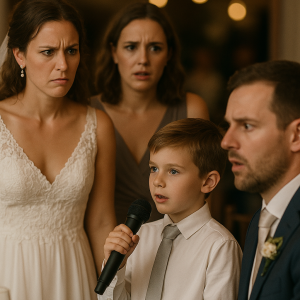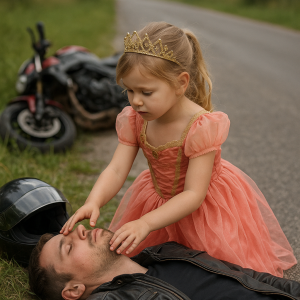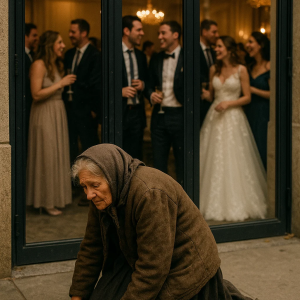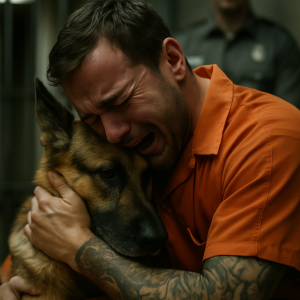Moments after giving birth, my mother-in-law accused me of infidelity and denied my baby. She never expected how I would respond to protect my child.
Moments After My Baby Was Born, My Mother-in-Law Accused Me
From the very beginning, my relationship with my mother-in-law, Margaret, was never what you’d call warm. The first time we met, she extended her hand with such a limp, lifeless shake that it felt less like a greeting and more like a subtle test I had already failed. Her sharp eyes scanned me from head to toe, not in admiration, but with a critical calculation, as if she were silently cataloging every flaw she could use against me later.
It didn’t take long for me to realize the truth: Margaret believed, with unshakable certainty, that I was not good enough for her son, Daniel.
It didn’t matter how much effort I poured into our relationship. I worked long hours, kept our little home spotless, and loved Daniel with every ounce of my heart. Still, none of that was enough. If dinner was too simple, she would sigh and comment about how her son always preferred “real cooking,” the kind his ex-girlfriend Claire used to make. If I wore my hair up in a bun, she’d murmur that I looked “sloppy.” If I wore a dress, she’d smirk and say I was “trying too hard.”
Her favorite pastime was talking about Claire — the woman she called “the perfect homemaker.” According to her, Claire was organized, stylish, family-oriented, everything I supposedly wasn’t. Sometimes Margaret even phoned Daniel at work, complaining that I was cold toward his family, exaggerating harmless things into grievances.
I told myself to be patient, to hold my tongue, to wait for time to soften her heart. But patience can only go so far.
Pregnancy Made Everything Worse
When I became pregnant, instead of celebrating the news of her first grandchild, Margaret used it as ammunition. She asked Daniel invasive, demeaning questions: Was he sure the baby was really his? Had he checked the dates?
At family dinners, she made sly remarks like, “Nine months is a long time to keep secrets.” She even joked — though her tone dripped with malice — that the baby might come out looking like our next-door neighbor.
I tried to ignore her for Daniel’s sake. I convinced myself that once she saw her grandchild, all her bitterness would fade. I desperately wanted to believe that when she held that baby in her arms, love would replace resentment.
The Day My Daughter Was Born
After hours of grueling labor, my daughter, Emily, came into the world in the pale light of morning. She was tiny, fragile, and perfect. Though my body ached in ways I had never imagined, my heart was so full that it pushed every cruel word Margaret had ever spoken out of my mind.
Daniel was there, eyes glued to Emily’s face. For hours, he didn’t move, didn’t blink, just stared at our miracle. But eventually, he needed to leave briefly to pick up the overnight bag I’d forgotten at home. “I’ll be back in thirty minutes,” he promised, kissing my forehead and then Emily’s.
I lay there in the quiet, Emily’s breathing soft against my chest, telling myself this was the turning point. Surely, Margaret would walk in with flowers, tears in her eyes, ready to leave old grudges behind.

My Mother-in-Law’s Cruel Accusation
The door opened.
Margaret entered without knocking. No flowers. No smile. No words of congratulations. The sharp click of her shoes echoed against the sterile hospital floor.
Her eyes flicked toward the baby, then locked on me. What I saw in her expression wasn’t joy, but triumph — as if she had been waiting for this very moment.
“I knew it,” she said loudly, her voice slicing through the silence.
“This baby isn’t my son’s.”
Her words hit me like ice water.
“What nonsense,” I whispered, forcing calm into my trembling voice. “Look at her — she has Daniel’s nose.”
Margaret laughed, short and harsh. “A nose? Anyone can have the same nose. You’re a liar, a homewrecker. You ruined my son’s life and now you expect me to accept this child as family?”
My chest tightened, but I kept Emily safe in my arms.
“You don’t have to like me,” I said quietly. “But this is your granddaughter.”
Her fury grew sharper. She stepped closer to the bed, voice rising. “Granddaughter? Don’t make me laugh. Look at yourself — greasy hair, dark circles. You can’t even care for yourself, and you expect me to believe you can be a mother? And her—” she jabbed a finger at Emily—“she’s a mistake. She’ll grow up just like you: selfish and deceitful.”
The Moment I Snapped
That was the moment something inside me broke. For years, I had endured her insults, swallowed her comparisons to Claire, let her twist my words. But now she wasn’t just attacking me. She was attacking Emily — my hours-old daughter whose only crime was being born.
I shifted Emily gently into one arm and pressed the nurse call button. When the nurse arrived, my voice was steady, calmer than I felt.
“Please remove this woman from my ward. And do not allow her back in.”
The nurse, startled by the tension, hesitated only for a second before nodding. She stepped between us and guided Margaret toward the door. Margaret protested, shouting about her “rights” as a grandmother, but I didn’t answer. I focused on Emily’s tiny face, her steady breaths, her innocence.
When the door finally closed behind them, I called Daniel. I told him every word Margaret had said, every insult, every accusation. My voice shook with both fury and relief as I said, “She will never be alone with our daughter. Not now, not ever.”
Daniel was silent for a long time. Then he said, “You’re right. I’m so sorry I wasn’t there.”
A Turning Point
That night, as Emily slept in my arms, I realized something profound: motherhood had changed me. Before, I might have bitten my tongue to keep peace. But now, I had someone to protect — someone whose first experiences in this world needed to be love, not judgment.
Some people might say I overreacted, that “family is family.” But I knew better. My duty wasn’t to maintain appearances; it was to safeguard my daughter’s emotional and physical well-being.
From that day forward, I made a decision: anyone who brought cruelty, suspicion, or hostility into Emily’s life would have no place in it, even if that person was her grandmother.
Standing Firm
In the weeks that followed, Margaret tried to reach out through Daniel. She sent clipped, insistent messages like, “I want to see the baby” and “It’s my right.” But I stood firm.
I told Daniel she was welcome to be part of our lives only if she could treat both me and Emily with kindness and respect. Until then, the answer was no.
Some might call this the start of a feud. I call it something else: a boundary. A clear line drawn in the sand that says, This far, and no further.
As I gazed at Emily’s peaceful sleeping face, I knew one thing with absolute certainty: I had made the right choice.









